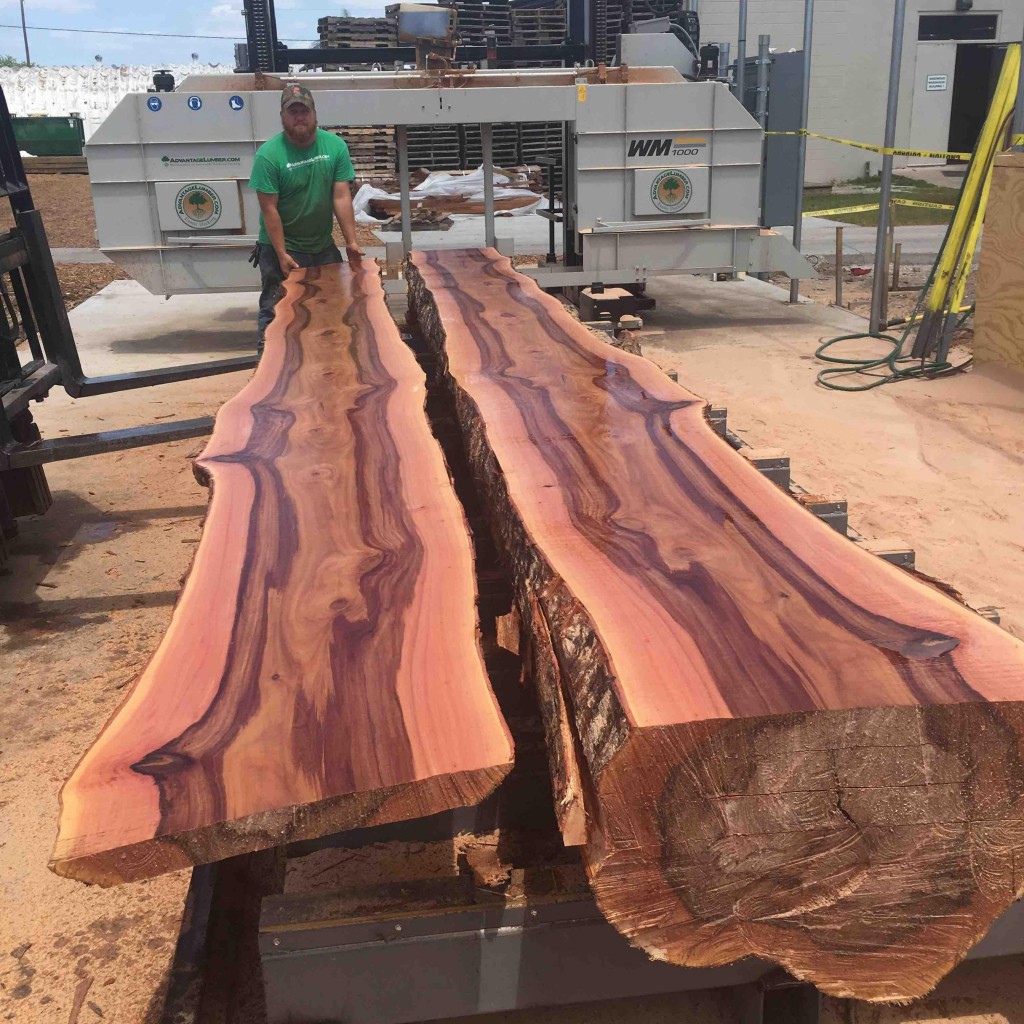
[php_everywhere]
Beefwood – ( Casuarina Spp )
Growing Region: Warm temperate to tropical areas throughout the world. Beefwood’s name is peculiar, but the wood is as beautiful as its name is odd. Commonly mistaken as a softwood, beefwood is many things but soft is not one of them, it is an incredibly hard wood more akin to Ipe than pine. Beefwood gets its name from its combination of red and maroon colors with grey rays, similar to the colors of raw beef. Beefwood is one of the hardest woods growing in the US and has grain ranging from straight to swirly. This combination makes it an interesting wood for table slabs, furniture tops, turning, gluing and finishing is relatively easy. This tree is being aggressively taken down in Florida because the fact it is horrible for the local ecosystem. Fortunately the slabs create beautiful tables, bench tops, or counter tops, to be used instead of buried or burned. Although prone to checking and cracking it does readily take a finish leaving one with the satisfaction of being eco-friendly and utilizing nature’s simple beauty to its fullest potential.
Common Name: |
Beefwood, Western Beefwood, Beef Oak, Beef Silky Oak and Silvery Honeysuckle, Australian Pine, She-Oak |
Botanical Name: |
Casuarina Spp |
Indigenous to: |
Western Australia |
Modulus of Rupture: |
13,630 lbf/in2 (94.0 MPa) |
Shrinkage: |
Radial: 3.5%, Tangential: 5.8%, Volumetric: 9.3%, T/R Ratio: 1.7 |
How is it dried: |
Info coming soon |
Is it dried quickly: |
Info coming soon |
Stability: |
Info coming soon |
Exterior Wood Recommendation: |
Info coming soon |
Fastening Method: |
Info coming soon |
Ecosystem impact: |
This wood species is not listed in the CITES Appendices or on the IUCN Red List of Threatened Species. |
Toxicity and allergic reactions: |
though there have been no adverse health effects directly attributed to Beefwood, the closely related Southern Silky Oak has been reported to cause eye and skin irritation. |
Odor: |
No odor |
Product we manufacture using this species: |
live edge wood slabs |
Other common uses: |
Inlay, marquetry, turned objects, and other small specialty items. |
Susceptibility to |
|
Dry Wood borers: |
Info Coming Soon |
Fungi: |
Info Coming Soon |
Termites: |
Info Coming Soon |
Treatability: |
Info Coming Soon |
Janka Hardness: |
|
More Product Information